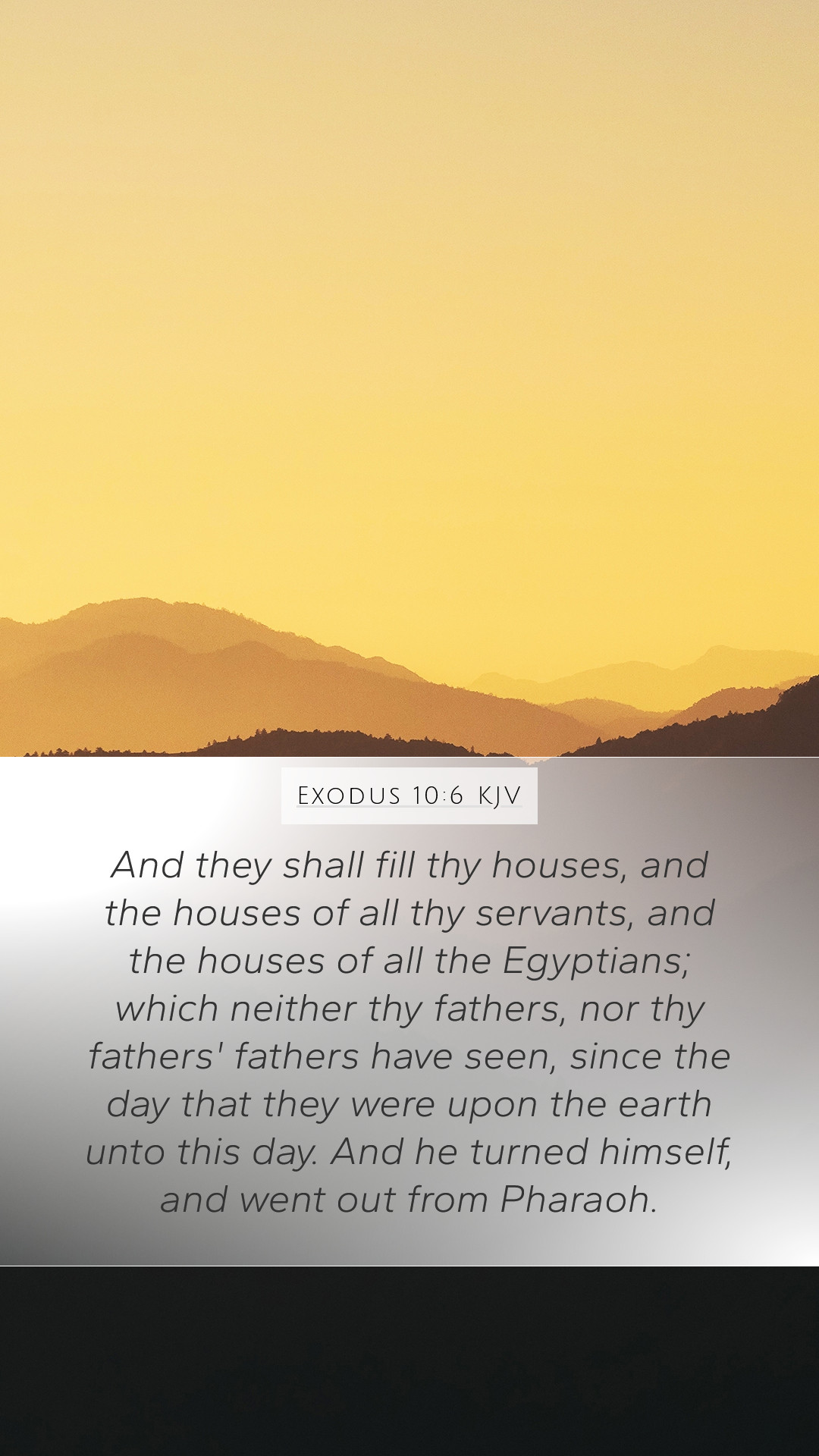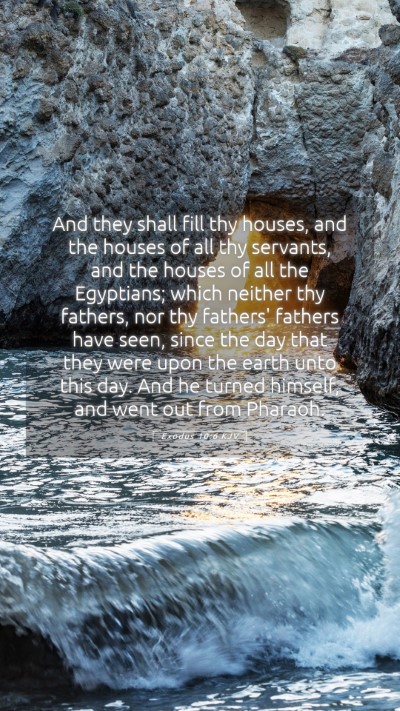Bible Verse Commentary: Exodus 10:6
Exodus 10:6 states, "And they shall fill thy houses, and the houses of all thy servants, and the houses of all the Egyptians; which neither thy fathers nor thy fathers' fathers have seen, since the day that they were upon the earth unto this day." This verse describes a moment of divine judgment upon Egypt, prompting an understanding of God's power and intentions throughout the Biblical narrative.
Summary and Commentary Overview
This verse is part of the plague narrative that illustrates the severe consequences of Pharaoh's unwillingness to heed God's commands through Moses. The significance of this verse lies in its articulation of the fullness of the plague of locusts, which would devastate the land and serve as a testament to God's might and the severity of Egypt's defiance.
Insights from Matthew Henry
Matthew Henry emphasizes the overwhelming nature of God's punishments as evident in this plague. He notes that the locusts would not only invade the land but their impact would reach every household—a poignant depiction of how sin permeates and affects all facets of life. Henry points out that this punishment was divinely ordained to provoke reflection and repentance in Pharaoh and the Egyptians.
Albert Barnes' Perspective
According to Albert Barnes, this passage illustrates the cumulative nature of God's plagues—each one building on the failure of Pharaoh to comply with God's command. Barnes elaborates that such a demonstration forecasts the totality of divine judgment, highlighting Israel's deliverance and Egypt's suffering. He reiterates that the severity of this punishment had no historical precedence, indicating an apocalyptic level of destruction intended to leave a lasting impression on the people.
Adam Clarke's Analysis
Adam Clarke offers a linguistic analysis and asserts that the universality of the plague signifies not just punishment but a profound lesson on the consequences of pride and rebellion against God. He mentions the phrase "since the day that they were upon the earth" suggests a catastrophic event unmatched in history, warning the Israelites and Egyptians alike of the inevitability of divine retribution when one defies God’s purposes.
Key Themes in Exodus 10:6
- Divine Judgment: This verse encapsulates the concept of divine judgment and its far-reaching implications in the biblical narrative.
- The Severity of Consequences: The total devastation wrought by the locusts symbolizes the extreme consequences of sin and disobedience.
- Historical Significance: Recognizing the historical context of the plagues enriches the understanding of God's relationship with Israel and Egypt.
- Call to Repentance: The impending disaster is a call for reflection and a possible return to righteous living.
Application of Exodus 10:6
Understanding this scripture requires a contemplation of its implications for our lives today. The universality of the locust plague serves as a metaphor for the destructive nature of sin in our lives. Just as the locusts filled every home, so does sin affect all facets of our lives if not confronted and repented. This serves as a reminder of the need for vigilance and obedience to God's will.
Bible Study Insights
- This passage provides essential insights for Bible study groups focusing on the themes of judgment and mercy.
- It invites discussions on how God's warnings are communicated and how they are often ignored, leading to significant consequences.
- Encourages online Bible study participants to explore historical and cultural contexts, enhancing their understanding of difficult Bible passages.
Related Bible Cross References
- Exodus 10:4-5: Description of the impending locust plague.
- Exodus 8:21-24: The plague of flies illustrating God's might.
- Joel 1:4: Mention of locusts in prophetic literature, drawing parallels to Exodus.
Conclusion
In conclusion, Exodus 10:6 serves as a powerful reminder of the consequences of disobedience and the comprehensive nature of God's judgment. Through a detailed examination using various commentaries, we gain a deeper understanding of this pivotal moment in the Exodus narrative. Such insights bolster the foundations of our Bible study as we strive to interpret Scripture accurately and apply its teachings to our lives today.


